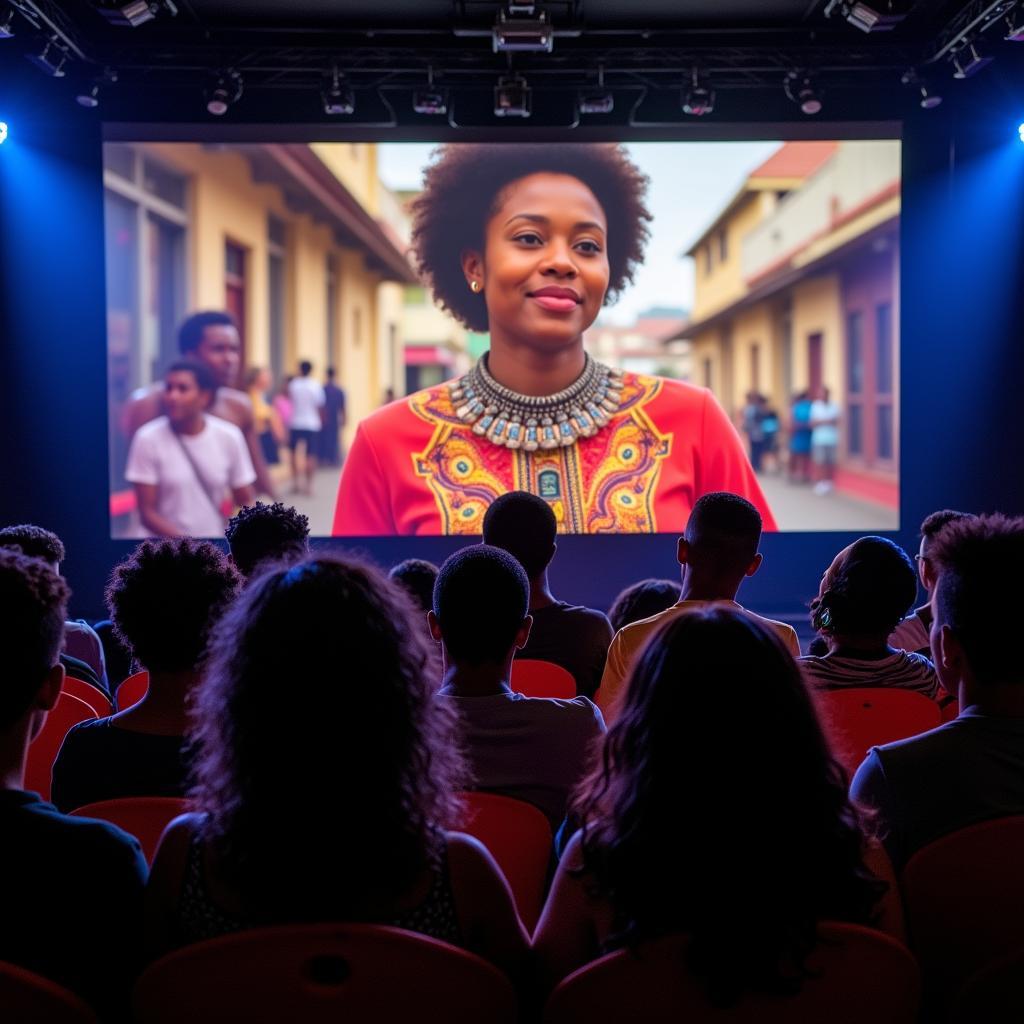The Enduring Power of the African Cultural Way of Oral Tradition
The African Cultural Way Of Oral Tradition is a vibrant tapestry woven through generations, preserving history, knowledge, and values. From epic narratives recited around crackling fires to proverbs whispered in hushed tones, oral tradition forms the bedrock of many African societies. It’s more than just storytelling; it’s a complex system of communication, education, and social cohesion. Let’s explore the richness and depth of this ancient art form.
The Significance of Oral Tradition in African Culture
Oral tradition isn’t simply a means of entertainment; it serves as a living library, passing down crucial information across generations. History, genealogy, legal customs, and spiritual beliefs are all entrusted to the spoken word, ensuring their survival in the absence of written records. This practice fosters a strong sense of community and shared identity, connecting individuals to their ancestors and their cultural heritage. One crucial aspect is the transmission of traditional knowledge, including farming practices, medicinal remedies, and craftsmanship techniques. This vital information ensures the continuity of essential skills and practices within a community.
Different Forms of African Oral Tradition
The African cultural way of oral tradition encompasses a wide array of forms, each serving a specific purpose within the community. Epic narratives, often recounting the exploits of heroes and ancestors, provide moral guidance and reinforce cultural values. Proverbs, concise and insightful sayings, offer wisdom and guidance in everyday life. Riddles, often used as a form of entertainment and intellectual exercise, also play a role in developing critical thinking skills. Songs, chants, and poetry, accompanied by music and dance, express emotions, celebrate events, and preserve historical accounts. These diverse forms create a rich tapestry of cultural expression.
The Role of the Griot in Preserving Oral Tradition
In many West African societies, the griot holds a position of immense respect and authority. These individuals are the custodians of history, genealogy, and cultural knowledge. As skilled musicians, poets, and orators, they preserve and transmit vital information through their performances. Griots often serve as advisors to rulers and mediators in disputes, drawing on their vast knowledge of history and custom. Their role is crucial in maintaining social harmony and cultural continuity. The griot’s skill in weaving together narratives, music, and poetry creates a powerful and immersive experience for the audience, ensuring that the traditions are passed down through generations. For more information on African storytelling, check out a story a story an african t.
Challenges and the Future of Oral Tradition in the Digital Age
The advent of the digital age presents both challenges and opportunities for the African cultural way of oral tradition. The increasing prevalence of written and digital media can lead to a decline in the practice of oral storytelling. However, technology also offers new avenues for preserving and disseminating these traditions. Recording oral narratives, creating digital archives, and sharing stories online can reach a wider audience and ensure their survival for future generations. Organizations and individuals are working tirelessly to document and preserve these precious cultural treasures. Initiatives are underway to integrate oral tradition into educational curricula, ensuring that younger generations appreciate and continue this rich heritage.
How Does Oral Tradition Function in African Society?
Oral tradition functions as a dynamic and interactive form of communication. It’s not simply a one-way transmission of information but a living process that adapts and evolves over time. Storytellers often engage their audience, inviting participation and encouraging dialogue. This interactive element ensures that the traditions remain relevant and meaningful to each generation.
What is the importance of preserving African oral traditions?
Preserving African oral traditions is paramount for safeguarding cultural heritage and promoting intercultural understanding. These traditions provide invaluable insights into the history, values, and beliefs of diverse African communities. They offer a unique perspective on the human experience and contribute to the richness and diversity of global culture. You may be interested in learning more about african god murugu.
Conclusion
The African cultural way of oral tradition remains a powerful force in shaping identity, preserving knowledge, and fostering community. From the griots of West Africa to the storytellers gathered around village fires across the continent, oral tradition continues to thrive and adapt in the modern world. Embracing both ancient practices and new technologies, African communities are working to ensure that these invaluable traditions continue to resonate for generations to come. Learn more about African culture through our article on african marigold scientific name.
FAQ
-
What are the main forms of African oral tradition?
- The main forms include storytelling, proverbs, riddles, songs, poetry, and chants.
-
Who are the griots?
- Griots are traditional West African storytellers, musicians, and historians.
-
How is oral tradition being preserved in the digital age?
- Through recordings, digital archives, and online platforms.
-
Why is oral tradition important?
- It preserves history, knowledge, values, and fosters community.
-
What are the challenges facing oral tradition today?
- The increasing prevalence of written and digital media can lead to a decline in oral storytelling.
-
How does oral tradition adapt and evolve?
- Through interaction with the audience and adaptation to contemporary contexts.
-
Where can I learn more about African oral traditions? Consider exploring resources like african forest girls or african porn video hd for a broader understanding.
Need more support? Contact us 24/7: Phone: +255768904061, Email: [email protected] or visit us at: Mbarali DC Mawindi, Kangaga, Tanzania.

